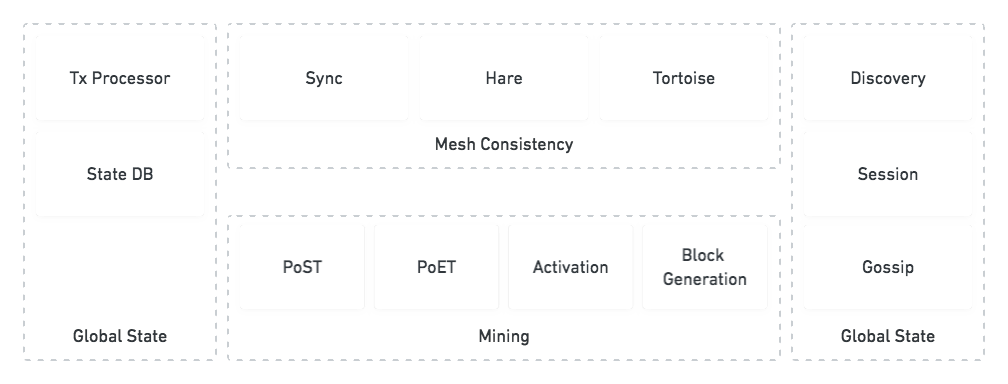 Documentation
¶
Documentation
¶
Overview ¶
go-spacemesh is a golang implementation of the Spacemesh node. See - https://spacemesh.io
 Directories
¶
Directories
¶
| Path | Synopsis |
|---|---|
|
Package api provides the local go-spacemesh API endpoints.
|
Package api provides the local go-spacemesh API endpoints. |
|
app
|
|
|
integration
Package integration provides RPC testing harness for executing and interacting with full node
|
Package integration provides RPC testing harness for executing and interacting with full node |
|
common
|
|
|
util
Package util implements hex encoding with 0x prefix.
|
Package util implements hex encoding with 0x prefix. |
|
Package crypto provides funcs and types used by other packages to perform crypto related ops
|
Package crypto provides funcs and types used by other packages to perform crypto related ops |
|
sha3
Package sha3 implements the SHA-3 fixed-output-length hash functions and the SHAKE variable-output-length hash functions defined by FIPS-202.
|
Package sha3 implements the SHA-3 fixed-output-length hash functions and the SHAKE variable-output-length hash functions defined by FIPS-202. |
|
Package filesystem provides functionality for interacting with directories and files in a cross-platform manner.
|
Package filesystem provides functionality for interacting with directories and files in a cross-platform manner. |
|
Package hare implements the Hare Protocol.
|
Package hare implements the Hare Protocol. |
|
Package log provides the both file and console (general) logging capabilities to spacemesh modules such as app and identity.
|
Package log provides the both file and console (general) logging capabilities to spacemesh modules such as app and identity. |
|
Package merkle provides a merkle tree which supports CRUD ops for user (k,v) data.
|
Package merkle provides a merkle tree which supports CRUD ops for user (k,v) data. |
|
discovery
Package discovery implements a Distributed Hash Table based on Kademlia protocol.
|
Package discovery implements a Distributed Hash Table based on Kademlia protocol. |
|
net/wire/delimited
Package delimited implements a reader and writer for simple streams of length-delimited byte records.
|
Package delimited implements a reader and writer for simple streams of length-delimited byte records. |
|
Package rlp implements the RLP serialization format.
|
Package rlp implements the RLP serialization format. |
|
systest
module
|
|
|
Package timesync is used to check system time reliability by communicating with NTP time servers.
|
Package timesync is used to check system time reliability by communicating with NTP time servers. |
|
Package trie implements Merkle Patricia Tries.
|
Package trie implements Merkle Patricia Tries. |
Click to show internal directories.
Click to hide internal directories.










